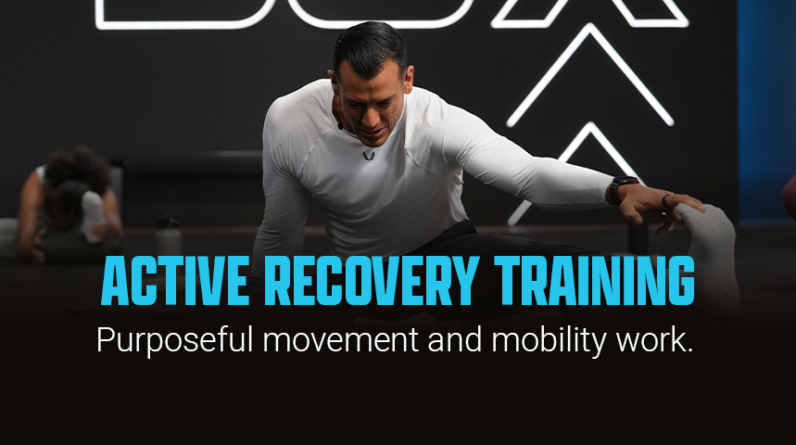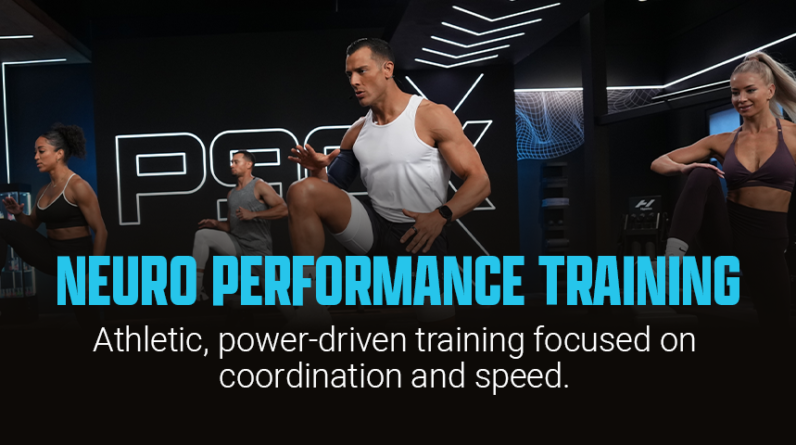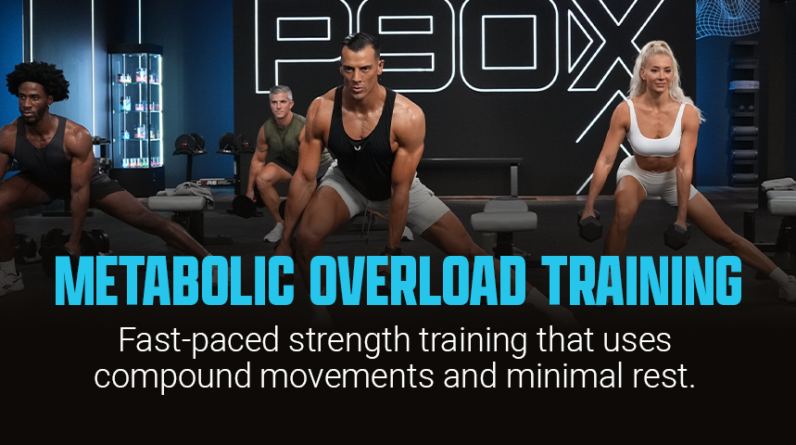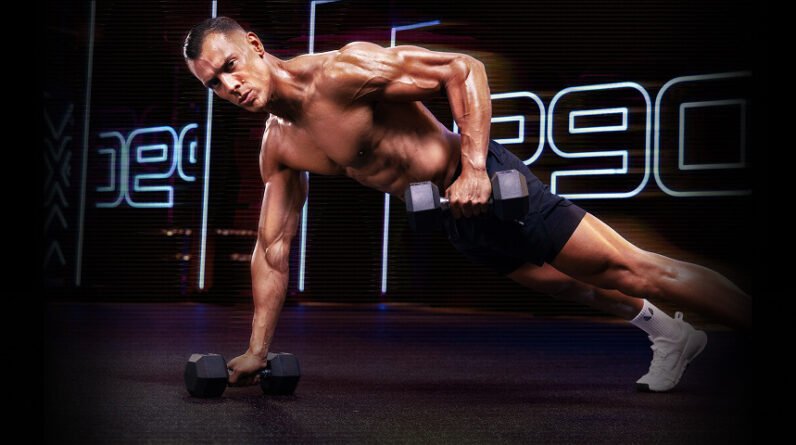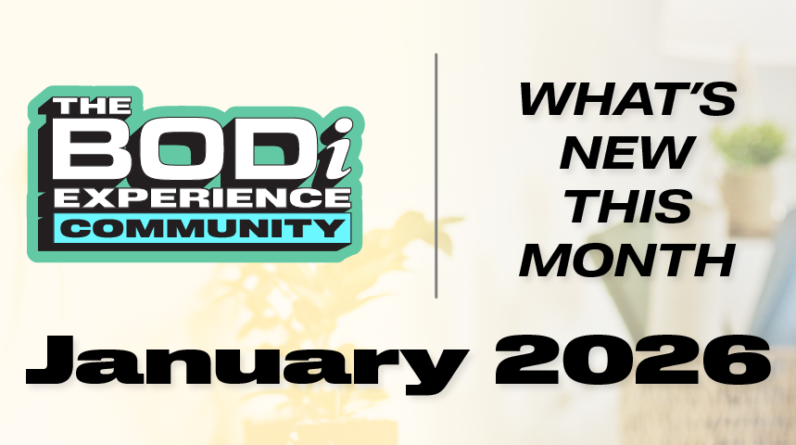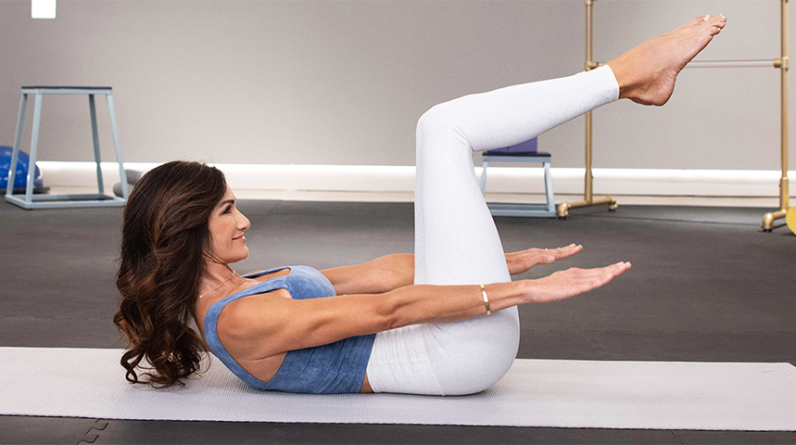
I was never the type of person who liked exercise. High-intensity workouts like boot camps, kickboxing, and running — left me feeling exhausted and sore, and I never made it past two or three sessions before throwing in the towel.
Then I tried Pilates. I’d seen some of my favorite ripped celebrities raving about it, and it sounded like a perfect fit: a gentler workout that still produced results.
That was seven years ago, and I still practice Pilates several times a week.
Want to find out if Pilates is the right workout for you? Here’s what you need to know.
Is Pilates Good for Beginners?
Yes! “A lot of people think that Pilates is just for girls or dancers, but it’s really for everybody,” says Beginner Pilates Trainer Lisa Hubbard.
“Your back and shoulders will be less tight, and you’re going to feel more toned in your entire body.”
Pilates was literally designed to suit all skill levels — the creator, Joseph Pilates, developed his methodology while he was interned during World War I to help his fellow inmates stay healthy and strengthen their minds and bodies.
(In fact, the Cadillac — an elaborate piece of Pilates equipment still used today — was inspired by a makeshift resistance machine he fashioned out of a hospital bed, straps, and springs.)
Pilates can improve posture, build overall strength, and help your weight loss efforts.
And while Pilates has come a long way since its humble beginnings, one thing hasn’t changed: It’s still a great workout for beginners.
How Often Should I Do Pilates?
Is it okay to do Pilates every day? Yes! “That’s the beauty of Pilates,” says Andrea Rogers, creator of Xtend Barre and XB Pilates.
“You can do it in some way every day, whether you’re on the mat or an apparatus like the Pilates reformer.”
That’s not to say you have to do Pilates every day to see results. One study found that doing an hour-long Pilates workout twice a week was enough to improve core strength and posture.
4 Great Pilates Moves for Beginners
So, you’ve decided to try Pilates. Awesome! These beginner-friendly moves can help you get started.
1. Pilates Hundred
“The purpose of this move is to warm up the body and increase circulation,” Rogers says. “The Hundred coordinates breath with movement and the engagement of the abdominals.”
- Lie on your back and center yourself on a mat.
- Draw both knees into your chest and hug with your hands.
- Lift your head up and look toward your abdominals.
- Extend your arms slightly above hip level.
- Float your legs to a tabletop position, with your thighs perpendicular to the floor, your knees bent at a 90-degree angle, and your shins parallel to the floor. (Or, if you prefer, you can do this move with your legs extended at a 45-degree angle.)
- Keeping your arms straight, vigorously pump your arms up and down. (This should be a small, fast movement — your hands should only move up and down a few inches.) Keep your neck and shoulders relaxed, and focus on using your abs.
- As you pump, inhale for three “pumps” and exhale for three “pumps.” Repeat until you’ve done 100 pumps.
2. Ab Roll-Up
“The roll up stretches the spine and works the core,” Rogers says. “The goal is to maintain a c-curve throughout and articulate the spine one vertebra at a time.”
- Start in a seated position with your legs bent and your feet flat on the floor. Lightly grab the back of your thighs and sit up tall.
- Round your spine, and lean back slightly. Slowly roll all the way down, one vertebra at a time, until you’re flat on the floor
- Pause for a moment, then engage your core and exhale as you slowly roll back up to a straight spine. Repeat.
3. One Leg Circle
Looking to improve shoulder and hip stability? Add this move to your Pilates routine. “This is a deep stretch and an exercise that requires strong coordination skills,” Rogers says.
- Lie flat on your back with your arms extended long by your sides.
- Extend your right leg straight towards the ceiling with your toes pointed. (If you feel too much of a stretch, soften the knee.)
- Keeping your hips stable, your leg straight, and your back flat on the floor, drop your right leg towards the left side of your body. Sweep your right leg down towards your left leg, then out to the right side, then back up to the starting position, as if you’re drawing a circle in the air with your toe.
- Then draw your right knee into the chest and give it a stretch.
- Complete eight reps and then reverse.
4. Scissor Kicks
- Lie on your back with your arms by your sides, your knees bent, and your feet flat on the floor.
- Bring your knees toward your chest, and then extend your legs straight up toward the ceiling as you peel your shoulders off the floor.
- Keeping your core engaged and your legs straight, slowly lower your left leg to the floor as you bring your right leg toward your body, pulsing twice.
- Repeat on the other side, bringing your left leg toward your body as you lower your right leg to the floor.
- Continue alternating until you’ve completed all reps. Start with 10 to 15 reps.


